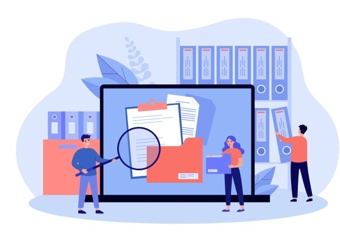Making the case for sustainable procurement
Sustainable procurement refers to a process where organizations fulfil their need for good/services by utilizing an approach that achieves value for money-generating benefits for not only for your business - but for our society and economy.
In this blog post, we explore what steps you can take to make procurement in your organisation sustainable, as well as outline the benefits it brings.
What is sustainable procurement?
According to the Sustainable Procurement Task Force (SPTF) sustainable procurement is: “a process whereby organizations meet their needs for goods, services, works and utilities in a way that achieves value for money on a whole life basis in terms of generating benefits not only to the organisation, but also to society and the economy, whilst minimizing damage to the environment.”
Let’s break down its key components:
Economics in sustainable procurement – it’s important to ensure that any items procured are purchased for the right price. Bodies like the Fairtrade Foundation have long advocated for suppliers of raw materials to be remunerated appropriately for their wares, rather than being exploited on price due to their impoverished circumstances.
In addition, CIPS in their latest sustainable procurement knowledge document, call for all payments to relevant parties to be made on time to avoid economic disruption.
Environmental factors in sustainability – climate change is one of the defining challenges the world faces, and governments across the globe are starting to respond. Landmark moments include Blue Planet II, the David Attenborough fronted documentary, which illustrated the sinister nature of plastic in our seas.
More recently, Extinction Rebellion, the non-violent direct-action protest group, arguably forced the government to pass the UK Climate Change Bill, by staging disruptive protests across the country.
The bill is designed to introduce legislation to move the UK towards a low-carbon economy. As such, the regulations are forcing the private and public sector to address environmental issues. Things like plastic reduction targets, impact on biodiversity as well as carbon footprint are all challenges that organizations are starting to tackle.
Social impact of sustainability – as globalization increases and supply chains become more complex and larger than ever before, consumers have placed businesses under pressure to carefully monitor their supply chains. Awareness of issues such as modern slavery, where workers are exploited has forced governments to introduce modern slavery legislation, like the Modern Slavery Act 2015.
Diversity is another key part of sustainable procurement. In the US, Affirmative Action obliges public sector organizations to source 25% of their goods and services from diverse suppliers. This means giving ethnic minorities and other underrepresented groups the opportunity to supply goods/services. While there isn’t a law like that in the UK, it’s something some business are considering.
Making the case for sustainable procurement
There’s a significant case to be made for sustainable procurement - as well as obvious reasons, such as saving the planet and morally the right thing to do, there are others too.
We’ve compiled some of the most important points:
- Provides cost savings – because of following a whole life costing methodology, to source goods/services the amount of waste going to landfill will reduce. This is because your organisation will reduce waste and recycle more
- Enhances corporate image – following a sustainable purchasing process will improve the perception of your business. If you can clearly demonstrate your commitment to sustainable procurement, customers and influencers will take notice
- Creates new markets for products and services – companies that comply with sustainable procurement practices are set to capitalize as purchasing becomes more sustainable. As such, they’ll be able to command premium prices and a share of emerging markets as people look to ease their conscience by using goods and services that have less impact on people and the planet
- Reducing waste and improving resource efficiency – by engaging in sustainable procurement, especially when considering the environmental impact of supply chains in their current state, you’ll use less plastic and other harmful packaging. Thus, reducing your plastic pollution and helping reduce your carbon footprint
- Transition now and get ahead of the curve – if the above wasn’t enough for you, legislation regarding the environment, modern slavery and other sustainable procurement laws are coming into force at a breakneck pace. The Modern Slavery Act, as well as the Climate Change Act, will make acting increasingly important as governments seek to tackle challenges in a creative way. By embracing change now and adopting sustainable procurement, you’ll get ahead of the curve
Is it time you considered sustainable procurement?
If you’ve yet to have considered sustainable procurement, there is no better time to start planning for it! It’s becoming an increasingly important concern for organizations in the UK and all over the world.
The key is to begin planning as soon as you can and in our next blog post about sustainable procurement, we’ll share some tips on how you can plan for it.
What do you think about sustainable procurement? Do you think it’s important? Or do you think profits will make it difficult to embrace it? Head over to our Twitter and LinkedIn pages to join the discussion. Or, for more information about Medius please visit our homepage.






